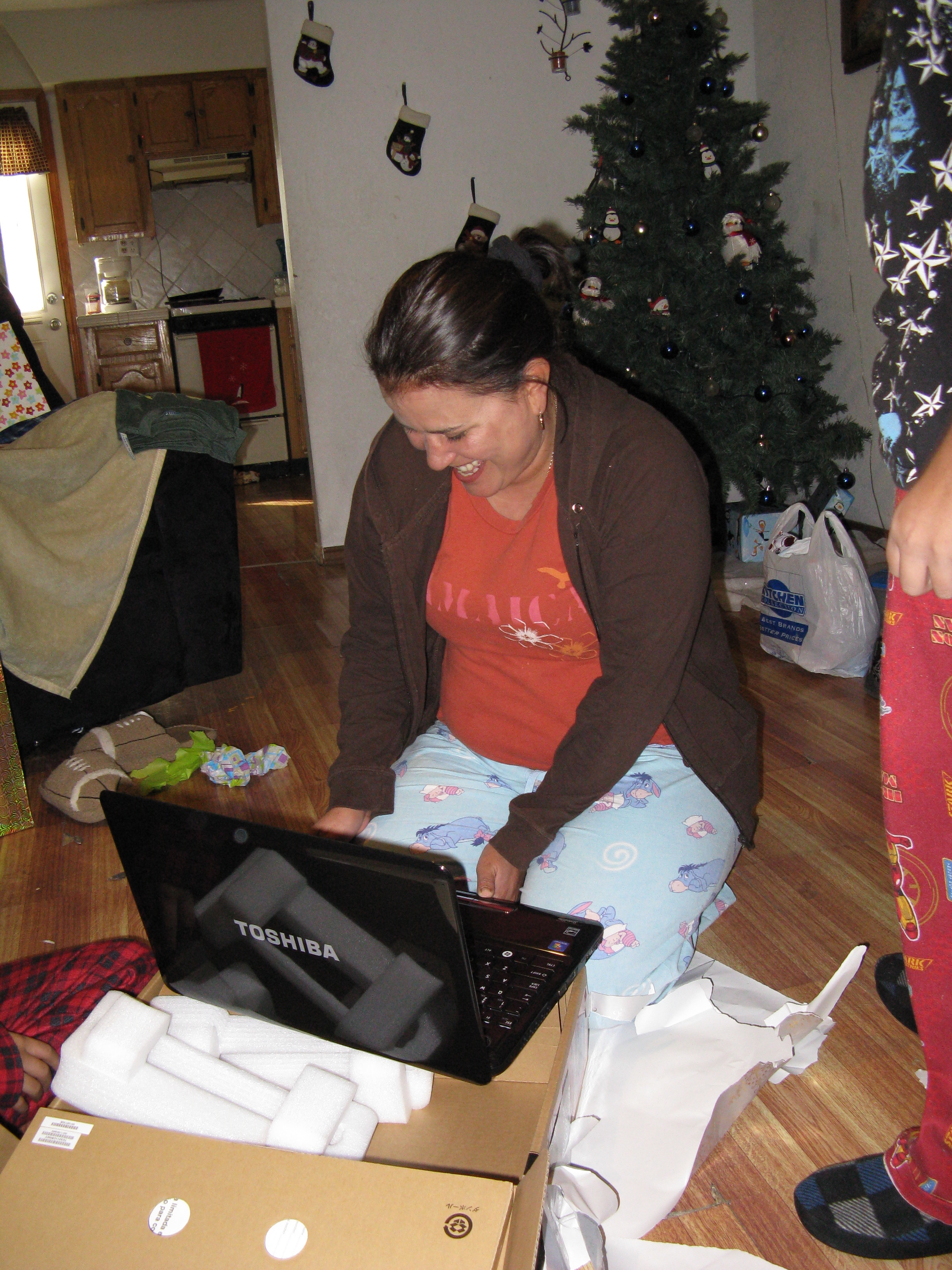It is a profound personal and professional accomplishment to see my mother sign on to Gchat, email my brother in México, peruse Craigslist, and practice her English and typing skills. When she opened her laptop, she asked out loud, “and what am I going to do with this?” We all knew the answer: what couldn’t she do!

My first year of college in Los Angeles, my mother coerced me into getting a cell phone for staying in touch – stipulating that I get a local number so she could avoid long distance fees when calling me. That year, she also acquired a $1,500 debt for a Gateway desktop for my little sister to be able to do homework. This is the same person who refused to make calls with my cell phone claiming she did not know how to use it, and who did not buy Microsoft Office for our computer – my sister used Notepad for the first three years of the desktop.
Despite my mother’s lack of digital literacy, formal schooling, or ability to speak English, she not only advocated our learning of new technologies, but nearly forced us to embrace them. In fact, it is because of the challenges that she confronted, that she sacrificed her personal needs to provide us with tools that would create more opportunities. Well, the cell phone was mostly to keep track of me since I was about to move thousands of miles away from her. But if not for her loving need to monitor my every move [read: stay connected to her first, and arguably favorite, child], I would have never gotten a cell phone, because I could not afford the monthly payment. Nearly a decade later, on January 12th 2010, I chatted online with my mother for the first time. Before signing off she said, “esto es muy adictivo,” “this is addictive.”
For the Christmas holiday, my sister and I pitched in and bought her a brand new Toshiba laptop – her very first computer. It was fun to watch her–confused and wondrous–unwrap the box branded with an unfamiliar name, only to realize at the very last minute that she was holding a computer in her hands. She was beyond excited, but also a little scared. She knew exactly what this gift meant. Just like her previous gifting of technology to us, this was no “just-for-fun-kind-of-gift.” It was a responsibility. Work, homework, communication, English – an opportunity.
She said, “This gift is too much. It’s too expensive. I used to buy you computers and now you are doing that for me.” It’s true. It’s because of her efforts and sacrifices that we are now able to buy her a computer. And, what couldn’t she do with an Internet-connected laptop?!
Ana, my mother, has been expressing for months her need to learn “the computer.” Seeing my two little brothers play online games and research homework assignments, my sister print driving directions and frequent dream interpretation sites, and me accessing a recipe for homemade champurrado and chat with my brother in México, exacerbated her urgency to learn the computer. Furthermore, realizing that just about any minimum-wage job now requires an online application– learning the computer was no longer an option, it became a necessity. But, learning the computer also meant three interrelated learning goals: English, operation of the machine, and online literacy.
I experienced my Mother’s process against the backdrop of my work the Center for Rural Strategies where I coordinate our advocacy efforts around media policy reform for rural communities. Now, more than ever, I understand the direct connection between media policy and opportunity. As I learn about the “technical and wonky language” of policy and the inner workings of media reform, I’m developing an intimate understanding of media justice. And I grow ever more aware of the challenges underrepresented and historically marginalized communities – rural, poor, immigrant, of color, queer, etc. – face in participating fully in our nation’s democracy, economy, culture, and society. Now, I am ever more vigilant in ensuring that these communities are at the forefront of the development and implementation of national media policies such as the National Broadband Plan. I use my mother as a measure by which to gauge my work. If it’s not clear to her, if she doesn’t feel empowered to shape it, and if it doesn’t further her opportunities–then I am not doing something right.
It is a profound personal and professional accomplishment to see my mother sign on to Gchat, email my brother in México, peruse Craigslist, and practice her English and typing skills. When she opened her laptop, she asked out loud, “and what am I going to do with this?” We all knew the answer: what couldn’t she do!
I have my own plans for her digital life, namely having her blog about her experience as a parent to first-generation college students and write about her delicious recipes (complete with instructional videos and pictures) –in English and Spanish. But, more than anything, I am thrilled to see what my Mother does with her computer. She is proud to tell me that she is now using both hands to type, and that she averted a wrong-website-situation the other day. She will likely enroll on a GED program, and continue to an on-line trade-certification program. I would not be surprised if she acquires the first Ph.D. in the family, and launches a website for her business venture. She is an ambitious and determined individual, now armed with a computer and Internet access. Be ready.
Guest Blog: Edyael Casaperalta is the Program and Research Associate for Center for Rural Strategies






